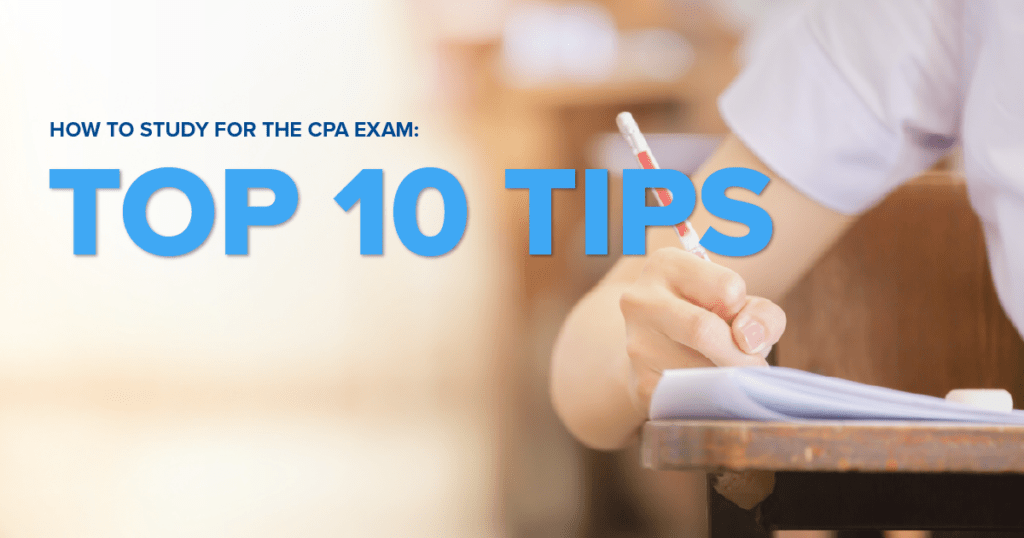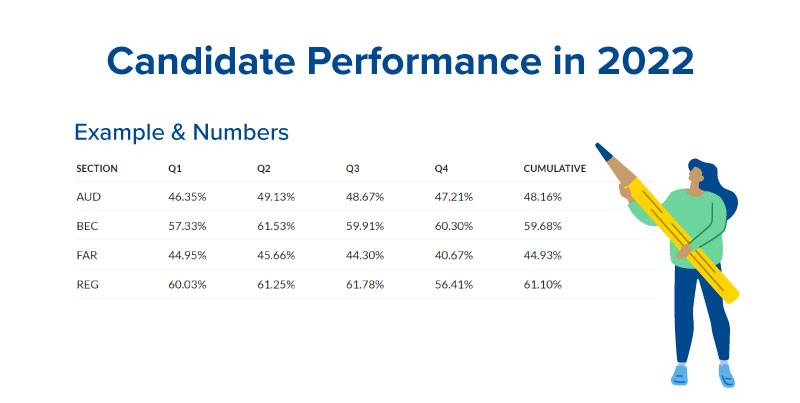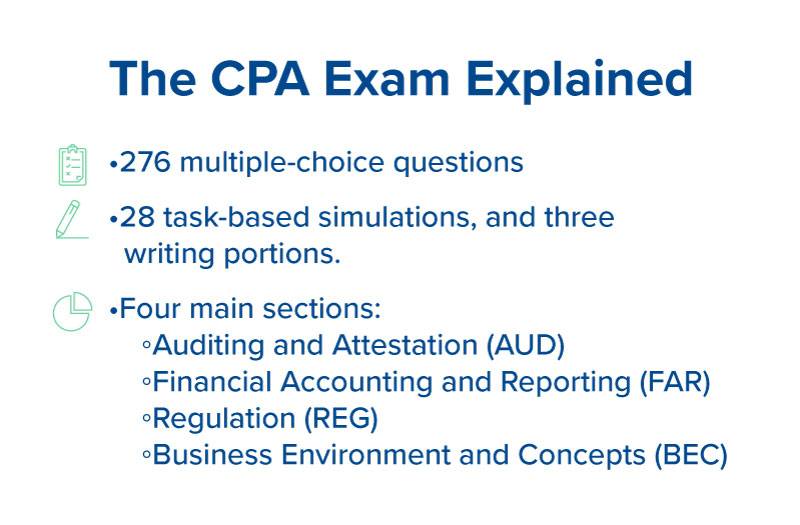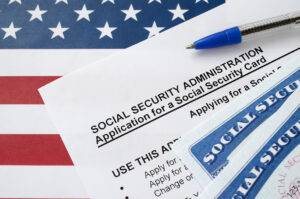
- |
- TaxByte
The Senate Finance Committee's version of the One Big Beautiful Bill Act (OBBBA) passed in
5 min read

It’s time for you to take the Uniform Certified Public Accountant Examination, better known as the CPA Exam. You’ve have chosen to become a Certified Public Accountant (CPA), met the education requirements, gained relevant experience, and completed the application process. Your next step is to prove you have what it takes to join the world of accounting and auditing.
Your hard work has led you to this point, and it’s time to cross the finish line. Four sections, 276 multiple-choice questions, 28 task-based simulations, and three writing portions now stand in your way of you and your CPA certification. According to the AICPA, the average pass rate of the exam 45-55%.
The exam, administered by the American Institute of Certified Public Accountants (AICPA), covers a wide range of accounting and business topics, including financial accounting, auditing, taxation, business law, and ethics. To pass the CPA exam, you score a minimum 75 on each section of the exam within an 18-month rolling period. The exam is known to be challenging, requiring months of preparation. With the extensive coverage of topics, comprehensive questions, and time constraints, many choose to prepare through self-study or review courses offered by various providers.

Cramming may not the best option to prepare for the CPA exam. Try to create a plan of execution that fits your study needs so that you arrive on your test day comfortable and confident.
If you’re hoping to become a part of the passing percent of candidates, here are our top 10 tips to help you strengthen your studies and achieve your CPA license.
It’s important to reiterate that cramming is the method to avoid. Developing a study plan allows you outline how you will cover all the exam material in a reasonable amount of time that fits your habits. This will help you stay on track and avoid cramming.
Everyone’s study plans will look different, and that’s ok. There are various types of study methods and learning styles. What works best for you, may not work best for the next person, but that’s what makes your study plan unique. It’s made for you, to work with you.
Make sure to compare your study schedule to other schedules in your daily life, including work, school, and even time off. Try to avoid overloading yourself so that your studying doesn’t start to seem like a burden. Think about fitting your study plan cozy in your schedule to avoid burnout and conflict.
Try these steps when determining your study plan:
Review materials are a great way to set the stage of the exam. Invest in CPA review materials such as textbooks, flashcards, and practice exams that are specifically designed to help you prepare for the real deal. Choose review materials that are reputable, comprehensive, and designed specifically for the CPA exam. Find materials that include practice questions and exams, as well as explanations and rationales for each answer.
Set achievable goals tailored to you. Instead of getting ahead of yourself, choose goals that motivate you to study regularly and enhance your progress. Choose a good pace to hit your goal points and congratulate yourself along the way. It’s going to be a long ride, but it will be worth it!
Reading can become redundant, and let’s be honest, it can get a bit boring. Use active study techniques can help keep the uplift the mood for a more effective learning environment. Try to incorporate:
Procrastination can become your worst enemy when preparing for such a complex exam. Be sure to set aside study time within your days or weeks that fit within your schedule. Trying to jam studying into your busy days becomes more of a disadvantage when it comes to retaining information.
Of course, enjoy your free time as well; however, when it’s time to study, remove all distractions. If you need to set your phone aside or turn off the television, do it. You can always picture them as your reward to yourself once you’ve completed your studies for the day.
Part of your review materials may include practice exams. Taking practice exams can mimic the actual testing experience while giving you an opportunity to find areas of improvement. You may even try setting a timer to get used to the pressure of the testing time limits.
Find some of these example tests with:

It’s important to know your strengths and weaknesses to understand where you need to improve. This may give you the leeway to spend less time on the information you know extremely well and move a chunk of that time and attention to where you may be struggling. Identify your more difficult areas sooner than later so you can readjust your time spent accordingly.
Having people in your corner can be a vital piece to the puzzle of success. Tell your friends and family about your new endeavor to not only receive support, but to also create a boundary for your studies. On the downside they could be a distraction, but on the upside they bring you needed materials, snacks, or even offer a good study environment.
Another way to create a support system is to find a study buddy or a study group to provide motivation, advice, and a way to get access to more study tools. The latest report from the National Association of State Boards of Accountancy shows that 191,000 exam sections were taken in 2022. So, if you work well in groups, this may be a great option for you.
In this era of “hustle culture,” it can be easy to lose yourself in your studies and to forget to look out for your own self-care. That’s a mistake. Getting plenty of rest not only sharpens your mental acuity, but it also helps you retain the information you’re studying. Eating well, getting some exercise, and making time for leisure all contribute to your overall mental and physical health—which in turn will affect your test performance.
Don’t stop believin’! Months of studying can take a toll on an individual, so it’s important to remember what’s the come at the finish line. If you feel yourself getting down, give yourself some slack and take a break, go to an event, have dinner with friend but most of all, don’t give up. You came to get your CPA certification, and you’re going to get it.
Good luck! And when you’re finished, and it’s time to start doing your CPE, come back and see us.






Subscribe to our news, analysis, and updates to receive 10% off your first purchase of an on-demand digital CPE course.